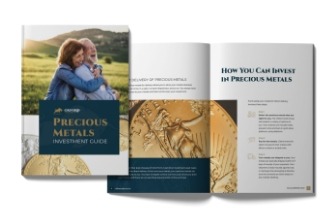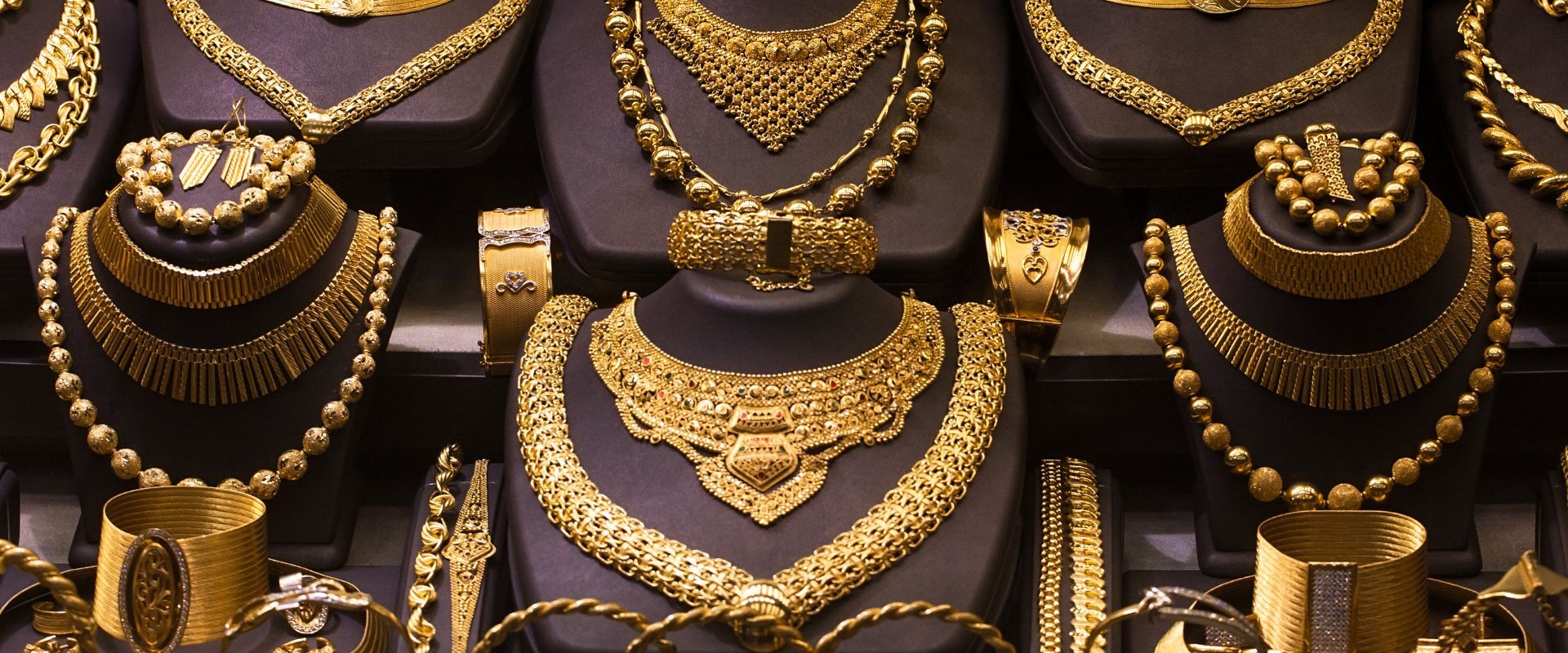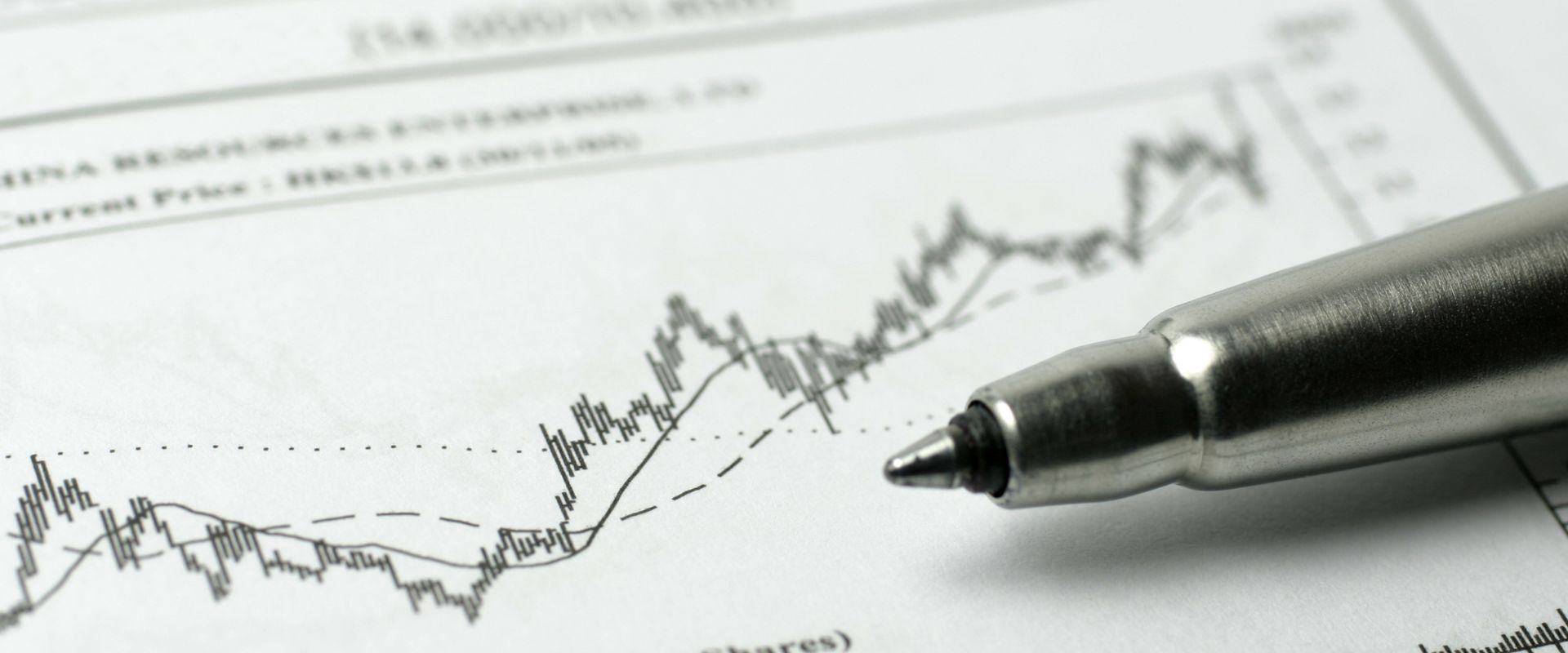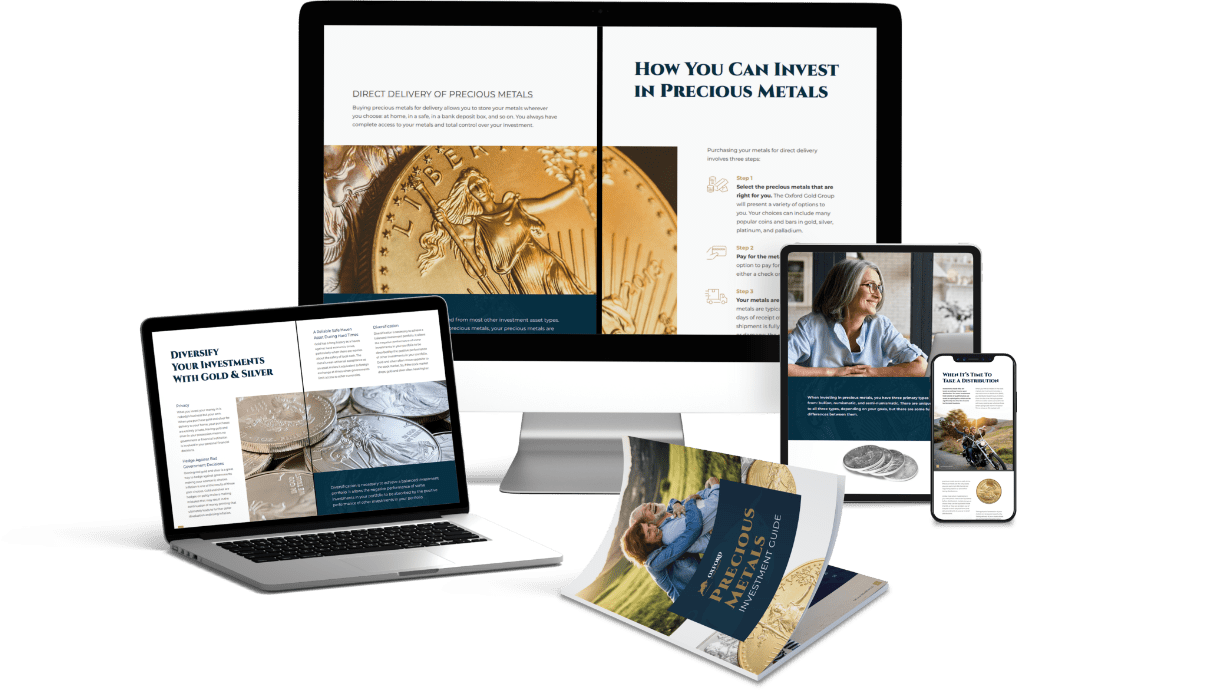Table of Contents
Gold’s impressive track record goes back thousands of years. Today, the shiny precious metal is a blue-chip investment amid widespread market uncertainty and rising global tensions. Investors can invest in gold through purchasing a physical product, buying stock in gold miners and associated companies, and exchange-traded funds (ETFs), among other options.
Still, many potential and existing investors grapple with the question: Is gold worth more than money? It helps to understand why investors value gold so much by looking at its history.
History of Gold
The gold market’s rich history began in 2000 B.C when ancient Egyptians started forming gold jewelry. But gold started to act as a currency much later in 560 B.C. Gold jewelry was already widely accepted throughout various corners of the earth, so creating a gold coin stamped with a seal seemed to be the best way to come up with an easily transferable, standardized form of money that would simplify trade.
Over time, the importance of gold continued to grow. Eventually, gold symbolized wealth throughout the world. In 1792, the U.S. government established the bimetallic standard. The standard stated that the U.S. currency had to be backed by either gold or silver.
In other words, coins used as mediums of exchange represented the gold (or silver) deposited at the bank. But several events in the 1900s eventually led to the transition of gold out of the monetary system. In 1971, the U.S. abandoned the gold standard.
The U.S. dollar ceased to be backed by gold. Both gold and the dollar began trading on the free market, and gold’s current bull market started. The price of gold began to soar, and in the following ten years, the cost of gold skyrocketed from $35 an ounce to $850 an ounce.
It then declined for about two decades until hitting a major low at the end of the stock market’s tech bubble in 2001. The 2020 pandemic triggered panic mode and the biggest bout of money creation ever seen in human history. The amounts of money created were astronomical, in turn driving the current bull market for gold. Thanks to all the money in circulation, inflation will eventually pick up, making gold more appealing as an investment.
Gold in The Modern Economy
Even though gold no longer backs fiat money, it still carries significant value in today’s modern economy. Central banks and other financial institutions continue to hold substantial amounts of gold in their reserves, emphasizing gold’s current and predicted value in the long-term global economy.
Gold as a Hedge Against the Dollar
The idea of gold as a preserve of wealth is even more critical in an economic environment where investors face rising inflation and a declining U.S. dollar. History has shown gold’s role as a hedge against both of these scenarios. Gold typically appreciates with rising inflation.
When investors realize that their money is losing value, they shift their investments to hard assets that have traditionally maintained their value. As a store of value, gold has managed to do quite well over time. Inflation can erode a currency’s spending power, but gold can help you hedge against such loss in value.
Gold Preserves Wealth
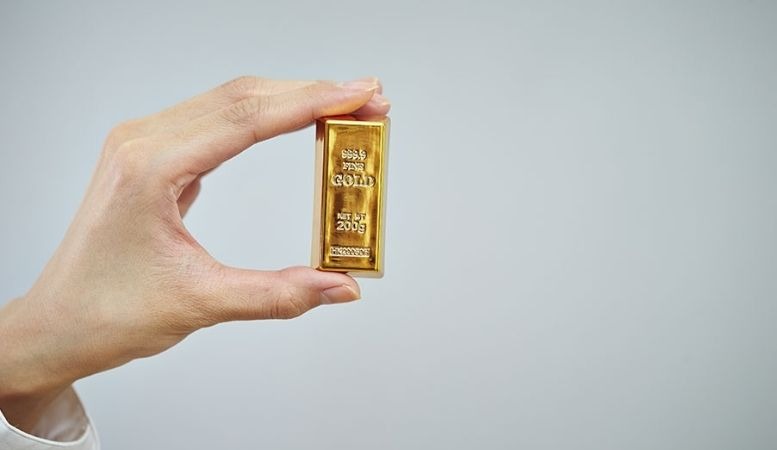
Gold is critical in the modern economy because of its impressive track record as a preserve of wealth throughout centuries. However, the same cannot be said about cash or paper-denominated currencies. Consider the following example:
An ounce of gold in the 1970s equaled $35. At that time, whether you chose to keep the $35 or hold an ounce of gold, they would both buy you the same things. However, if you had an ounce of gold today and converted it for today’s prices, it would have much more relative value than the $35. This means you would have lost a significant amount of your wealth if you decided to hold the $35 rather than the ounce of gold because the value of a dollar has succumbed to inflation, while the value of gold has increased.
Gold as a Safe Haven
Political and economic uncertainty continue to become a reality of our modern economic environment, which explains why investors look at gold as a safe haven during times of economic and political uncertainty. Whether it’s the tensions in Africa, the Middle East, or elsewhere, history is full of political coups and the collapse of empires and currencies.
Investors who held gold during such times managed to preserve their wealth and, in some cases, even use gold to escape. That explains why investors will often rush to buy gold whenever news hints at some type of global economic uncertainty.
Gold as a Dividend-Paying Asset
Growth investors find gold stocks more appealing than income investors. These stocks rise and fall with the price of gold, but some well-managed mining companies still manage to stay profitable even when the price of gold is down. Gold stock prices often magnify the increases in prices of gold.
A relatively small increase in gold prices can lead to significant gains in the best gold stocks. Investors of gold stocks usually obtain much higher returns on investment than owners of physical gold.
Gold as a Diversifying Investment
Investors generally consider gold to be a diversifying investment. Historically, gold has clearly served as an investment that can diversify your portfolio, regardless of whether you’re worried about protecting your wealth, a declining U.S. dollar, or even inflation. Since the value of gold is not correlated to real estate, bonds, or stocks, investing in it is a great way to diversify your investments.
In other words, investing in gold helps to lower your risk and boost your rewards when other assets fail to perform over extended periods. But that doesn’t mean you should remove your entire wealth from the banking system and invest in gold. Even with precious metals being easy to liquidate, cash and banks are still essential for transferring and accessing your money for daily transactions.
However, investing in gold is an excellent part of a balanced portfolio. As part of a long-term strategy, gold is a guarantee of security from market fluctuations.
The Gold Mining Sector
The gold mining sector, which includes gold extracting companies, can be highly volatile. When evaluating the dividend performance of gold stocks, consider the company’s long-term performance regarding dividends. Factors such as the sustainability of the dividend payout ratio and the firm’s history of paying dividends are the most critical elements to examine when evaluating their financial statements.
A company’s ability to payout dividends sustainably is greatly enhanced if it has consistently strong cash flows and low debt levels and their historical performance shows steadily improving cashflow and debt figures. Analyzing long-term rather than short-term figures paints a better financial picture of the company’s overall performance.
Different Ways of Owning Gold
Gold provides a wide range of investment options, such as:
- Gold Jewelry
- Gold options and futures
- Gold as a FOREX broker
- Gold mining shares
- Gold coins
- Gold Bullion
- Gold Mutual funds
- Gold ETFs
- Gold Companies
Interest and Savings

With inflation rates surpassing the interest earnings on savings, saving money in a bank is far less profitable than ever before. Physical gold and silver are as liquid as cash in a bank account, but with the steady increases in the price of gold driven by investment demand and scarcity, gold is a better earner than bank savings. This is especially true during financial crises.
Conclusion
Every investment has its advantages and disadvantages. If you’re skeptical about holding physical gold, buying gold shares could be a safer or more leveraged option. If you believe gold can be a safe hedge against inflation, investing in jewelry, bullion, and coins can be great strides toward gold-based prosperity.
Whether you’re looking for the peace of mind that physical assets can provide or thinking about your financial security, gold offers a better way to protect your wealth than hard cash.
The value of gold has always risen during political and economic uncertainty, upset, war, devaluations, and more; as cash loses its value and banks fail, gold remains a valuable asset. While you’ll always need cash in hand for day-to-day purchases and utilities, the traditional savings accounts should no longer be your first option if you’re looking for a way to preserve and grow your wealth.
Overall, there’s no single investment or asset that can come close to beating gold’s long-term track record. Throughout history, it has always maintained its purchasing power. Gold is durable and beautiful, making it superior to other mediums of exchange. It’s valued on its own merit and not backed by any central bank or government.
Want to join the bandwagon and invest or trade in gold? You can get the support and advice you need at Oxford Gold. We are the experts to turn to when you need help with your investment decisions and are happy to match you with reputable investing platforms for gold trading.
Contact our team today to start investing now.
